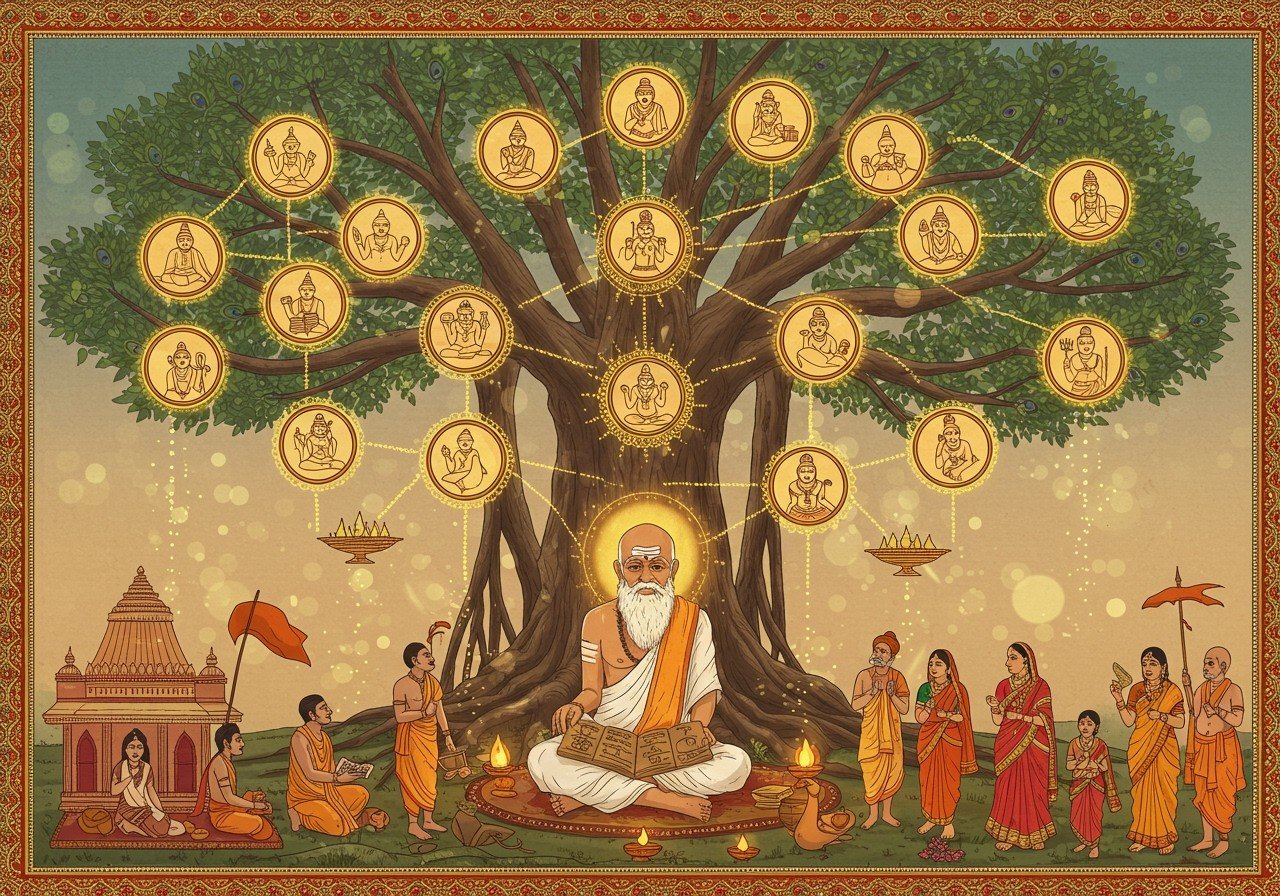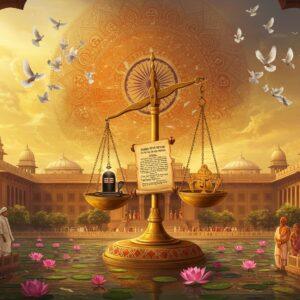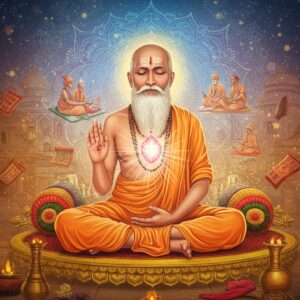
In Indian culture, Gotra holds deep significance, acting as a thread connecting us to our ancestors. Understanding your Gotra is essential, especially for traditional ceremonies and weddings. This guide illuminates the path to finding your Gotra, blending time-honored traditions with modern resources. At poojn.in, we understand the profound importance of Gotra in our rituals and ceremonies. We are here to support you on this journey of discovery, offering not only the finest puja items but also the knowledge and guidance you seek.
Understanding the Significance of Gotra
Gotra signifies a lineage, tracing back to ancient Rishi lineages. It plays a vital role in Hindu traditions, from matchmaking to religious rituals. Distinct from caste, Gotra specifically denotes ancestral descent. Even today, within India and the diaspora, Gotra remains relevant, though some misunderstandings persist.
Traditional Avenues for Discovering Your Gotra
Traditionally, the quest for your Gotra begins with conversations, sharing stories with family elders and relatives. Often, family priests, our Purohits, maintain records that chronicle family histories through generations. These records, sometimes preserved in handwritten ‘Bahi Khatas,’ can be invaluable. Oral traditions, passed down through generations, also play a significant role, offering glimpses into our ancestral past. Cultural gatherings provide opportunities to connect with relatives and explore Gotra within the broader family context. Remember, regional variations exist in Gotra identification. Preserving this knowledge by documenting it safeguards this heritage for future generations.
Modern Tools for Gotra Research
In our digital age, online platforms and databases open new avenues for exploring ancestral lineages. Genealogy websites and even DNA testing can illuminate our family histories. Digital archives offer access to a wealth of historical records. Social media platforms connect us with extended family, enabling us to share and learn about our Gotra. Even mobile apps dedicated to Gotra identification are now available. While these modern resources offer convenience, they should be used in conjunction with traditional methods for a comprehensive understanding. Always verify the authenticity of online Gotra information.
Navigating Gotra Finder Tools
Gotra Finder tools, available online, are designed to assist you in your search. Enter family details, following the step-by-step instructions provided, to retrieve lineage information. The accuracy of these tools can vary based on user feedback and the data they hold. Be mindful of privacy considerations when using online tools, and be aware that some may involve costs while others may offer free access. Familiarize yourself with troubleshooting tips for a smoother experience.
Personal Stories and Their Significance
Real-life stories illustrate how people have successfully traced their Gotra, weaving together traditional methods and modern tools. Discovering one’s Gotra can profoundly impact family relationships and is particularly relevant for marriages and religious events. For those in the diaspora, finding their Gotra is a bridge back to their roots, a reconnection with their heritage. Genealogists emphasize the cultural importance of preserving Gotra information for future generations.
Embarking on Your Gotra Discovery
Finding your Gotra is a personal journey, connecting you to your heritage. Here are some pathways to explore:
- Ask Family Elders: Start with a heartfelt conversation with your parents, grandparents, or older relatives. They are often the keepers of family history, sharing stories and details you might not find anywhere else. Their memories hold a treasure trove of information.
- Consult Family Priests: If your family has a Purohit, they may possess records or knowledge about your Gotra, having served your family for generations. Their wisdom can be invaluable.
- Explore Genealogy Records: Some families maintain detailed genealogy records, like ‘Bahi Khatas,’ These documents can be a goldmine of ancestral data, revealing your Gotra and more.
- Online Research: The internet offers resources that may provide clues about your Gotra. Search your surname and explore online databases, but remember to cross-check information with family sources for accuracy.
- Astrological Consultation: Astrologers can use your birth details, including your Nakshatra, to determine your Gotra. This combines traditional wisdom with your personal celestial information.
- Visit Religious Sites: Places like Siddhvat Ghat in Ujjain house ancient family ledgers maintained by priests. A visit can be both spiritually enriching and informative in your Gotra quest.
- Guru’s Gotra: If you have a Guru and are unsure about your Gotra, you might consider adopting your Guru’s Gotra, a practice accepted in certain spiritual traditions.
- Default Gotra: If you can’t find your Gotra, “Kashyap” or “Shiva” Gotra can serve as placeholders during religious ceremonies. These are universally respected options.
How Poojn.in Supports Your Journey
Poojn.in provides expert guidance and resources to assist you in discovering your Gotra. Our dedicated customer support team, available at 03369029784 or via WhatsApp at 9476142738, is ready to answer your questions and provide support.
For those seeking to perform Gotra-specific rituals, we offer:
- Authentic puja samagri kits tailored to your Gotra Learn more about choosing the right puja kit.
- Sacred texts and resources on different Gotras.
- Consultation with our Pandit partners for Gotra verification. Avoid common puja mistakes with our guide.
- All essential ritual items for Gotra-based ceremonies. Explore our range of sacred threads (dor mala) and Tulsi Kanthi malas.
Order conveniently through our website, www.poojn.in, with pan-India delivery. Our customer service team is available to guide you in selecting the most appropriate puja items for your Gotra needs.
Embracing Your Ancestral Heritage
Discovering your Gotra is more than just finding a name; it is about embracing the legacy of your ancestors. It is a journey of connecting with the stories, values, and rituals that have shaped your identity. Through conversations with family, guidance from priests, and the use of available resources, you gain a deeper understanding of your roots. Celebrate this knowledge, for it is a source of connection and pride, linking you to the rich tapestry of your heritage.
Frequently Asked Questions About Gotra
What is Gotra, and why does it matter? Gotra represents a clan or lineage in Hindu society, tying us to our ancestral past. It is a cornerstone of many cultural and religious practices, guiding rituals and ceremonies.
How can I find my Gotra? Your Gotra can be discovered through conversations with family elders, exploration of family records, or consultation with religious texts. Your family history is the key.
Are there online tools for finding my Gotra? Yes, several websites and online platforms are dedicated to helping individuals trace their Gotra. They may ask for details like your surname and region.
Is it possible to change my Gotra? No, Gotra is an inherited lineage passed down through generations, typically from the father’s side, and cannot be changed.
What if my family doesn’t know our Gotra? If your family is uncertain, reach out to community elders or local temple priests. They may possess records or knowledge of your lineage.
Does everyone in the family share the same Gotra? Traditionally, all male members of a family and their descendants share the same Gotra. Women typically adopt their husband’s Gotra after marriage.
How does Gotra influence marriage in Hindu customs? Marrying within the same Gotra is generally avoided in Hindu tradition to minimize genetic similarities, as members of the same Gotra are considered to share a common ancestor.
Is Gotra based on scientific principles? While Gotra is primarily a cultural and religious concept, some believe it has ancient roots in genetic understanding, promoting diversity in marriage.


